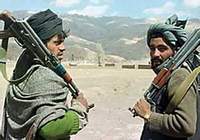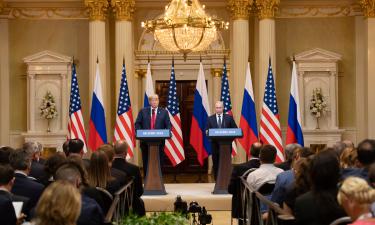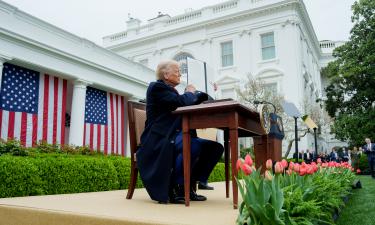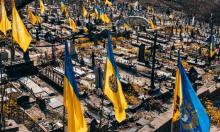Afghanistan sans frontiers
Half a year ago the situation in Afghanistan looked pretty clear and analyzable. The U.S. and NATO forces with a little help from the Afghan government troops were conducting military operations against the Taliban militants aided by al-Qaeda instructors. The situation changed following the election of Afghan parliament. A complicated balance of power inside the country exerts a strong influence on the course of hostilities.

Al-Qaeda can no longer provide help in full to the Afghan insurgents since the al-Qaeda terrorist network was significantly disrupted by the Coalition forces last year.
However, the West’s foreign policies create fresh opportunities for the Islamic propaganda machine. Mullah Omar, one of al-Qaeda’s leaders, made a statement while speaking by phone to Reuters on March 16. According to him, the number of young recruits joining the organization is particularly high these days. The young would-be suicide bombers hate the West intensely.
The fighting in Afghanistan has been increasingly severe recently. The larger is a part of the country the government troops are trying to control, the tougher resistance they meet in the process. Every new victory indicates a spell of new and more severe fighting.
The Taliban fighters now use new tactics to hamper the efforts aimed at economic recovery of Afghanistan. They use suicide bombers for launching attacks against major construction lots. They also target foreign personnel who help the Afghan government raise the country from ruin.
The Karzai administration has to fight not only against the Islamic fanatics inspired by Bin Laden and Mullah Omar. The drug traffickers have actually become a major independent force waging war against the central authorities. Besides, the clans in the eastern parts of the country are also fighting for the creation of a new state in the above parts of Afghanistan and adjoining border areas of Pakistan. The new state is to be ruled by local warlords.
Tensions are rising between Kabul and Islamabad. High-ranking officials at the Pakistani security forces are demanding in earnest that their weak neighbors establish order in Afghanistan. Pakistan has already unveiled plans for building a security fence along the Pakistan-Afghan border. Landmines will be put in the ground near the fence to prevent terrorists from circulating freely through the border.
The point is that the existing border between the two countries has never been recognized by any Afghan government. Therefore, it is still unclear when the fence project will get off the ground.
Nowadays the so-called Durand Line is a poorly marked 1,610 mile border between Pakistan and Afghanistan. The border line was named for Sir Mortimer Durand, a foreign secretary of the British Indian government. It was drawn in 1893 with intent to mark the limits to which the British troops advanced during the war with Afghanistan at the end of 19th century.
The new Afghan army is approximately 26,000 strong yet it can not be more efficient due to a lack of political will on the part of the Afghan leadership. None of the ministries can function properly due a lack of personnel. Afghan President Hamid Karzai needs to propose a new cabinet shortly but the mission seems impossible because the political process has been virtually blocked by Afghan parliament. The warlords have become the members of parliament, and nowadays they enjoy holding sway quite legally.
The Western sponsors demand that Karzai take further steps for the democratization of Afghanistan. Women are expected to hold at least two seats in a new parliament.
On the other hand, some of the new parliamentarians clatter their arms and say it is time the Afghans embraced the law of shari‘ah. The outcome of the collision remains to be seen. One thing is pretty clear, though. Peace in Afghanistan will take years if not decades to arrive.
Politcom
Translated by Guerman Grachev
Discuss this article on Pravda.Ru English Forum
Subscribe to Pravda.Ru Telegram channel, Facebook, RSS!





